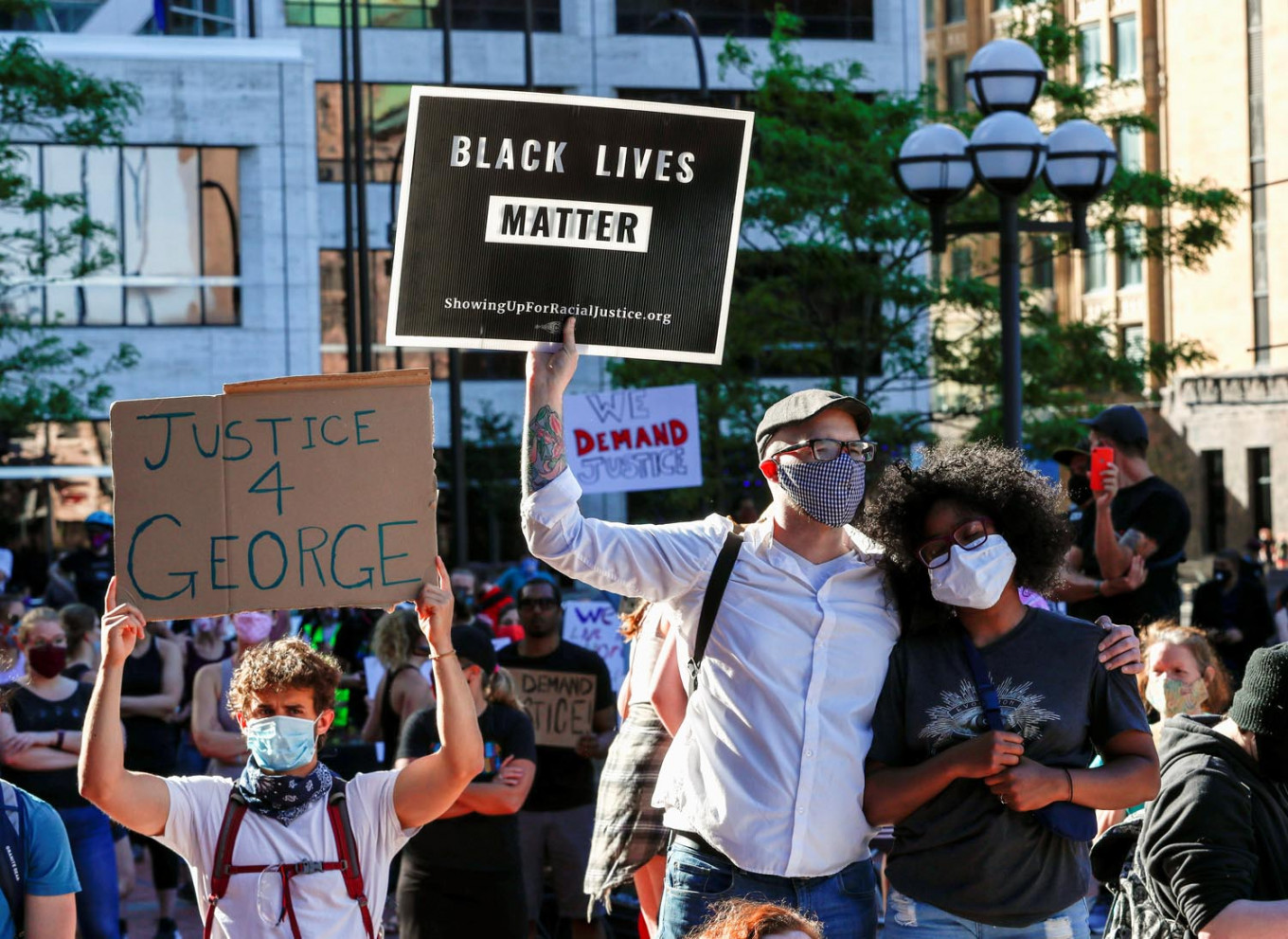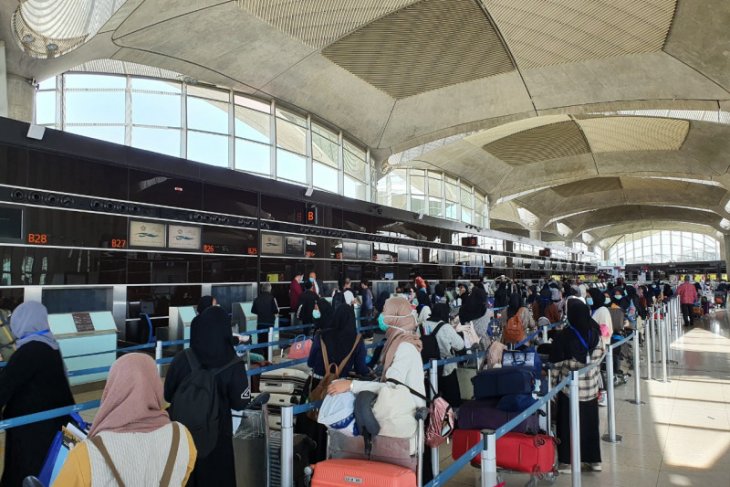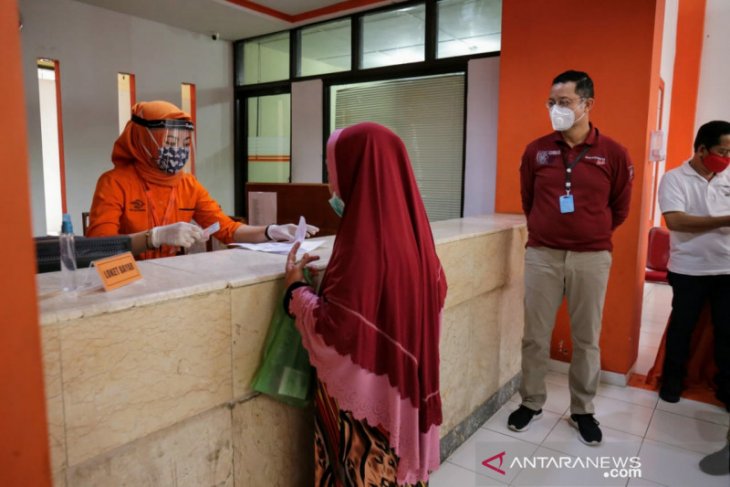Live Streaming
Program Highlight
Company Profile

Ani Hasanah
June
 People gather outside the Hennepin County Government Center to protest the death of George Floyd, an unarmed black man, arrested by police officers in Minneapolis, Minnesota, US. May 28, 2020. (Reuters/Eric Miller)
People gather outside the Hennepin County Government Center to protest the death of George Floyd, an unarmed black man, arrested by police officers in Minneapolis, Minnesota, US. May 28, 2020. (Reuters/Eric Miller)
Iran's new parliament speaker said Sunday any negotiations with Washington would
be "futile" as he denounced the death of a black American that has led to violent protests across the US.
Mohammad-Bagher Ghalibaf, a former commander of the Revolutionary Guards' air force, was elected speaker on Thursday of a chamber dominated by ultra-conservatives following February elections.
The newly formed parliament "considers negotiations with and appeasement of America, as the axis of global arrogance, to be futile and harmful," he said in his first major speech to the chamber.
Ghalibaf also vowed revenge for the US drone attack in January that killed Qasem Soleimani, the commander of the Guards' foreign operations arm.
"Our strategy in confronting the terrorist America is to finish the revenge for martyr Soleimani's blood," he told lawmakers, pledging "the total expulsion of America's terrorist army from the region".
Ghalibaf has also slammed the US over the death of George Floyd, an unarmed black man, during an arrest in Minneapolis which has led to widespread protests across the country.
Tens of thousands of protesters have taken to the streets from New York to Seattle demanding tougher, first-degree murder charges and more arrests over the death of Floyd, who stopped breathing after Minneapolis police officer Derek Chauvin knelt on his neck for nearly nine minutes.
Decades-old tensions between Tehran and Washington have soared in the past year, with the sworn arch enemies twice appearing to come to the brink of a direct confrontation.
The tensions have been rising since 2018, when President Donald Trump withdrew the US from a landmark nuclear accord and began reimposing crippling sanctions on Iran's economy.
That was followed by the US drone strike near Baghdad airport in January that killed Soleimani, a hugely popular figure in the Islamic republic.
Days later, Iran fired a barrage of missiles at US troops stationed in Iraq in retaliation, but Trump opted against taking any military action in response.
Ghalibaf called for ties to be improved with neighbours and with "great powers who were friends with us in hard times and share significant strategic relations", without naming them.
The 58-year-old Ghalibaf is a three-time presidential candidate who lost out to the incumbent Hassan Rouhani at the last election in 2017.
The newly elected speaker had also served as Tehran mayor and the Islamic republic's police chief before taking up his latest post.
In a tweet on Saturday, he slammed what he called the United States' "unjust political, judicial, and economic structure".
This had been "pumping war, coups, poverty, indiscrimination, torture, fratricide and moral corruption to the world, and racism, hunger, humiliation, and 'choking by knee' in its own country for hundreds of years", Ghalibaf said.
"What can one call it if not the Great Satan?" he added, using Iran's term for its arch enemy.
Iran's Foreign Minister Mohammad Javad Zarif echoed his remarks on Twitter.
"Some don't think #BlackLivesMatter. To those of us who do: it is long overdue for the entire world to wage war against racism. Time for a #WorldAgainstRacism," he said.
The post was accompanied by an image of a 2018 statement by US Secretary of State Mike Pompeo in which the text was changed to be critical of the United States instead of Iran.
The altered text read: "The US government is squandering its citizens' resources.
"The people of America are tired of the racism, corruption, injustice, and incompetence from their leaders. The world hears their voice."
Pompeo responded to Zarif by tweeting that "you hang homosexuals, stone women and exterminate Jews", without elaborating further. (JP)
June

Balohan seaport in Sabang, Aceh Province. ANTARA/Khalis
The Sabang municipality has permitted to reopen its marine resort and resume operations of sea transportation modes to Sabang on Weh Island amid the novel coronavirus (COVID-19) pandemic by adhering to the health protocol standard.
The decision was stipulated in Sabang Mayor's Circular Letter No. 440/3111 on June 1, 2020, Bahru Fikri, the Sabang municipality administration’s spokesman, noted in Banda Aceh on Monday.
"Fast boats and ro-ro ferry operate one-round trip per day, with a maximum passenger limit of 50 percent of the normal capacity of the ship, and they must apply the COVID-19 health protocols," he remarked.
Local tourists are required to hold Sabang ID cards and undergo medical checkups at the seaport.
Tourists coming from outside Sabang are required to hold health certificates issued by the hospital, community health center, or other health clinic.
During their visits to tourist attractions in Sabang, tourists are required to follow health protocols by wearing face masks, carrying hand sanitizers or soaps, and checking body temperature.
Hotels and inns in Sabar are also necessitated to follow stringent health protocols.
"The hotels and inns must be sprayed with disinfectant liquid daily. Physical distancing and health protocols pertaining to the spread of COVID-19 must be applied," he stated.
The Sabang coastal town, situated on Indonesia's westernmost island of Weh, is a tourism icon of Aceh Province since it is known for its scenic marine panorama.
Sabang has become a preferred place for marine tourism lovers for engaging in various activities, including diving, snorkeling, fishing, sun-bathing, and visiting interesting spots.
Weh Island is exotic and romantic, as it is surrounded by several small islets. Moreover, its strategic location, Weh Island, located between the Indian Ocean and Malacca Strait, is easily accessible by both domestic and foreign tourists.(ANTARA)
June

As many as 74 Indonesian citizens departed from the Queen Alia International Airport in Amman, Jordan's capital city, on Sunday (May 31, 2020), by boarding Qatar Airways' QF-956 flight and arrived in Jakarta on Monday (June 1, 2020). (ANTARA/HO-KBRI Amman)
Some 74 Indonesian citizens departed from the Queen Alia International Airport, Amman, Jordan's capital city, on Sunday, aboard Qatar Airways flight QF-956 and landed at the Soekarno Hatta International Airport in Cengkareng, Banten Province, Monday.
This self-initiated repatriation, involving students of the Nurul Fikri Islamic Boarding School, members of the Jamaah Tabligh congregation, and university students, who completed their studies, was facilitated by the Indonesian Embassy in Amman.
The returnees belonged to the Indonesian Embassy's second batch of the self-initiated repatriation mission, while the first batch of Indonesians affected by the ongoing global pandemic of the novel coronavirus disease (COVID-19) had returned home in April.
"In ensuring the state's presence since the onset, the Indonesian Embassy in Amman has facilitated the repatriation process based on its authority to ensure that our citizens can return home safely," Indonesian Ambassador to Amman Andy Rachmianto remarked.
Ambassador Rachmianto also bore witness to the departure of 74 Indonesians. The embassy, in cooperation with Qatar Airways, conducted the self-initiated repatriation of the second batch on Sunday.
"May this COVID-19 crisis soon end, so that our community members can resume their day-to-day activities in a new normal scenario," he stated.
The Indonesian government has continually striven to repatriate its citizens stranded abroad amid the ongoing COVID-19 pandemic over the past few months.
In Malaysia, some 4,800 undocumented Indonesian migrant workers will have been released from the country's immigration detention houses to then be repatriated to Indonesia since June 6.
The Malaysian Immigration and Foreign Ministry’s officials had discussed this repatriation-related plan with their counterparts from the Indonesian Embassy on May 28, Malaysian Defence Minister Sabri Yaakob stated in Putrajaya last weekend.
Prior to their repatriation, all Indonesians currently accommodated at several detention houses in the neighboring country will undergo examination using the Rapid Test Kit Antigen (RTK Antigen) method to diagnose for the presence of coronavirus.
The coronavirus disease, which initially hit the Chinese city of Wuhan at the end of 2019, has since then spread to at least 202 countries and territories, including Indonesia, with a huge spike in death toll.
The Indonesian government officially announced the country's first confirmed cases on March 2 this year. The ongoing COVID-19 pandemic has weakened the purchasing power of scores of Indonesian families, particularly those who lost their jobs. (ANTARA)
June
Government to Offer Assistance to COVID-19-Impacted Citizens until December
 Archive-Minister of Social Affairs, Juliari P. Batubara (right) observing the distribution of cash social aid to those affected by the COVID-19 pandemic in Central Java, Thursday (21/5/2020). ANTARA/HO-Social Ministry Public Relations)
Archive-Minister of Social Affairs, Juliari P. Batubara (right) observing the distribution of cash social aid to those affected by the COVID-19 pandemic in Central Java, Thursday (21/5/2020). ANTARA/HO-Social Ministry Public Relations)
Social Affairs Minister Juliari Peter Batubara revealed that the government will distribute social assistance to those impacted by the COVID-19 pandemic until December 2020.
"In accordance with the president's directives during a recent cabinet meeting, the social assistance will continue to be offered," he noted after attending a virtual ceremony held to commemorate Pancasila Day in Jakarta on Monday.
The government is preparing to continue to distribute social assistance to people affected by the COVID-19 pandemic. The assistance comprises basic necessities for those residing in the Jakarta, Bogor, Depok, Tangerang, and Bekasi (Jabodetabek) area as well as cash social assistance for those living outside the area.
During the pandemic, the government has distributed social assistance to the people apart from regular programs, such as the Family Hope Program (PKH) and Non-Cash Food Aid (BPNT).
Some of the forms of assistance include packages of basic necessities, cash social aid, and direct cash assistance from village budgets for those impacted by the COVID-19 pandemic.
The minister remarked that currently, distribution of the third stage of basic food assistance was complete and would continue to the next stage of aid distribution. The disbursal of cash social assistance is also partially complete.
"The first phase of social assistance has been completed and the second and third stages will follow thereafter," Batubara stated.
The minister pointed out that the nation's vast geographical landscape and varying conditions had impeded quick distribution of social assistance to pandemic-affected communities and made the process more challenging.
Batubara highlighted the government’s continued endeavors to improve the distribution of social assistance based on the results of evaluation of the initial stages.
He emphasized that social assistance pertaining to COVID-19 countermeasures was only provided to pandemic-affected individuals, who were not recorded as recipients of social assistance in the government's regular aid program. The distribution of aid will be halted after the pandemic ends. (ANTARA)

